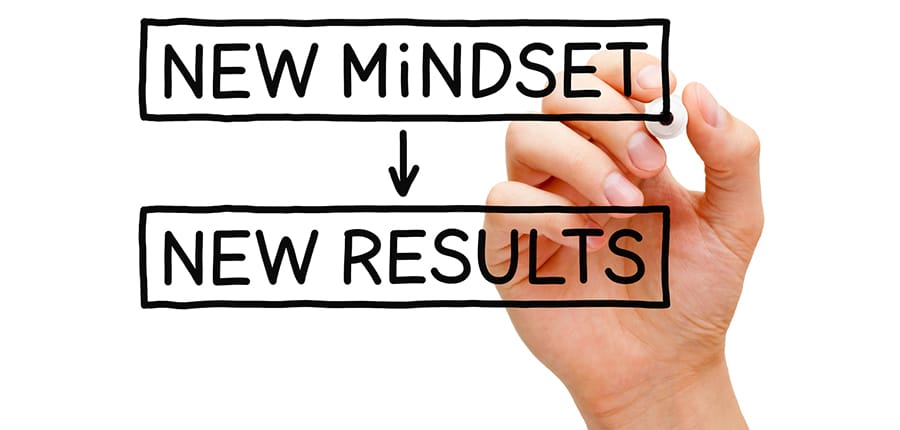7 money lessons in 7 minutes
Sometimes it’s not really our “fault” because we’ve just learned bad money lessons from our parents, which we’ve unhelpfully carried through into adulthood.
Other times, it’s because we simply spend more than we earn and have never been within 100 metres of a budget.
In fact, most people have no idea how much they spend every month because a lot of it is on credit, which they don’t pay back in its entirety. But there are plenty of ways that you can improve your financial situation and work towards building long-term wealth.

Being honest about your finances is a good start, of course, as is education – even if it only takes a few minutes in the beginning.
So to kick-start your learning, here are seven money lessons you can learn in just seven minutes!
1. Where does your money go?
Keeping tabs on how you spend your money, whether through fixed expenses like rent or mortgage repayments or discretionary spending like dining out and travel, is crucial to understanding where your money is going each month.
Sitting down with a professional is a good place to begin, but you can also create your own budget using a spreadsheet to list all of your monthly expenses.
Now, if you’re going to the effort of preparing a budget, make sure you update it with everything – even your daily coffee, because it all adds up over a month!
2. Your money mindset matters

Do you know what your mindset around money is?
Do you believe you deserve to be rich or poor?
Too many people have an unhelpful money mindset which will always limit their ability to build wealth. Many of the world’s richest people weren’t born with a silver spoon in their mouths, but rather had a mindset that enabled them to be successful.
They also had more rich habits than poor ones.
You can start by thinking of money as something to invest, rather than something to save or spend.
Self-made millionaire Grant Cardone wrote on Entrepreneur: “The only reason to save money is to invest it. Put your saved money into secured, sacred (untouchable) accounts. Never use these accounts for anything, not even an emergency. This will force you to continue to follow step one (increase income). To this day, at least twice a year, I am broke because I always invest my surpluses into ventures I cannot access.”
3. Pay yourself first
 One of the keys to wealth creation is to understand the concept of paying yourself first.
One of the keys to wealth creation is to understand the concept of paying yourself first.
What does that mean exactly?
Well, it means that out of your income, whether you’re employed or self-employed, you need to save a portion of it as soon as you are paid.
That could be the equivalent of one hour’s pay from each day, or it could be 10 per cent of your gross income.
Whatever the figure, it is an amount which you save into an account, which will then be used for investment purposes or as your financial buffer for tough times.
The secret is not touching it.
4. How much money should you save?
By now, you’ve decided to pay yourself first – every week, fortnight or month.
But perhaps you’re wondering how much that should be?
Well, it should be an amount that you can save relatively easily every pay period, so that you can still enjoy your life without being overly extravagant.
Author David Bach has worked out a savings formula depending on your age group.
He recommends saving:
- 10 per cent of your gross income in your 20s
- 5 per cent of your gross income in your 30s
- 15 per cent of your gross income in your 40s
- 20 per cent of your gross income in your 50s
The reason why the percentage increases as you age is that as you get older you generally earn and spend more, but it can also be more difficult to get a new job if you’re made redundant, for example.
5. How to prioritise debt
 We’ve talked quite a bit about saving but what about paying the debt?
We’ve talked quite a bit about saving but what about paying the debt?
It’s a staggering insight to learn that there are more than 16 million credit cards in circulation in Australia.
And each one of those cards has an average balance of more than $3,100!
So, if you have a credit card, make sure you pay off the balance in its entirety every month.
For example, if you have a windfall of $10,000, but you also have $10,000 worth of bad debt via credit cards and a personal loan, pay off those debts first.
There is no point saving money if you have bad debt hanging over your head.
So perhaps an addendum to the previous two sections should be: Pay bad debt first and then pay yourself.
6. Understand how your partner views money
It’s an unfortunate fact that arguments about money are a leading predictor of divorce.
Previous generations found talking about money matters uncomfortable, but the reality is that successful couples talk about it all the time!
When a relationship starts to get serious, it’s also important to understand the financial background of your partner.
You should also know how your partner feels about money as well as their financial goals and aspirations.
If one half of the partnership wants to spend all their money on extravagant holidays, but the other has serious investment goals, it’s not difficult to see that the relationship will likely struggle.
7. How much money do you need for a rainy day?
 Rainy day funds are vital.
Rainy day funds are vital.
Having a financial buffer will ensure that you can more easily ride out any ups and downs such as job loss or an extended illness.
Again, how much money you will need depends on your lifestyle and expenses, but a general rule of thumb is about three to six months of expenses.
This figure often increases as you get older because you may have more expenses as well as more investments generally.
Conclusion
Too many Australians have no idea how much they spend each month and merely live from one pay period to another.
But developing a budget, a wealth mindset and financial goals are three of the keys to investment success.
The world of banking and finance can be a pretty daunting one for both novice and sophisticated investors, and since our establishment in 2002 we’ve focused on providing outstanding service and business standards.
This approach was vindicated when we were named Victoria’s favourite mortgage broker at the Investors Choice Awards.
So, if you’re considering developing a plan for financial success, why not contact Intuitive Finance today to ensure you have the right information and expert support on your side from the very beginning.
The information provided in this article is general in nature and does not constitute personal financial advice. The information has been prepared without taking into account your personal objectives, financial situation or needs. Before acting on any information you should consider the appropriateness of the information with regard to your objectives, financial situation and needs.
- Don’t buy property in a trust before reading this - February 3, 2026
- When should you refinance? Navigating RBA rate cuts and loyalty rates - January 23, 2026
- What the latest inflation data means for borrowers with the upcoming February RBA decision - January 20, 2026
